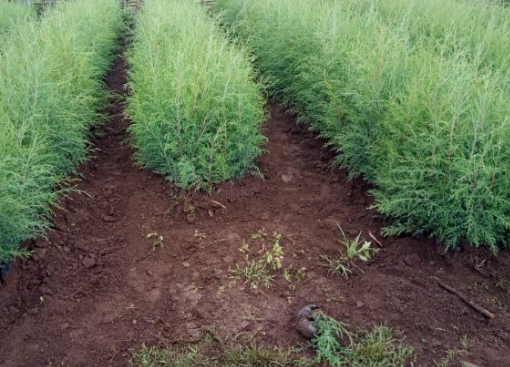Meet Viola Chepngetich, one of the participants at the Tea Belt Technical Vocational Education Training Conference that was held at Kericho Township Technical Vocational Educational and Training Institute recently.
She was among the best local innovators who showcased their inventions at the conference. She had one of the most brilliant inventions, a homemade pesticide developed specifically for use in tea cultivation.
The pesticide is composed of natural ingredients such as aloe vera, lemon and white ashes which represents a significant step towards sustainable and environmentally friendly farming practices.
Chepngetich’s initiative addresses the growing need for organic alternatives to conventional chemical pesticides which can have detrimental effects on both environment and human health.
“I began my research in 2019, conducting tests in Ainamoi, Kericho County and Limuru in Kiambu. To ensure its effectiveness, I first tested the pesticide on kales (Sukuma Wiki) before applying it to tea plants. The results were effective with the pesticides proving to be 80 percent effective in controlling pests. This success highlights the significance of my solution to enhance tea farming while promoting ecological balance,” said Chepngetich.
She said the pesticide can be used to control all crop pests but it is most effective on aphids and mosquito bird pests.
Chepngetich’s work will go a long way in enhancing the entrepreneurial quest of the farmers to produce quality tea for market and become profitable through reduction of pests that affect tea production at a lower cost.
The youthful innovator who has yet to roll out the organic product lamented that she encountered myriad challenges owing to the high cost of packaging materials for her products.
She further pointed out that she plans to take her innovation to Kenya Health Plant Inspectorate Service (KEPHIS) and Kenya Agricultural and Livestock Research Organisation (KALRO) for further testing and advice.
Chepngetich, who is a tutor at Township Vocational Training College said she is proud of her innovation which is in the formative stages and hopes to advance her scientific research in order to provide much-needed solutions to farmers’ production challenges.
Currently, she said the organic pesticide is still undergoing further research and is being used in the actual control of pests on the college farm and by farmers living around the institution.
By Dominic Cheres and Sharon Chepwogen





